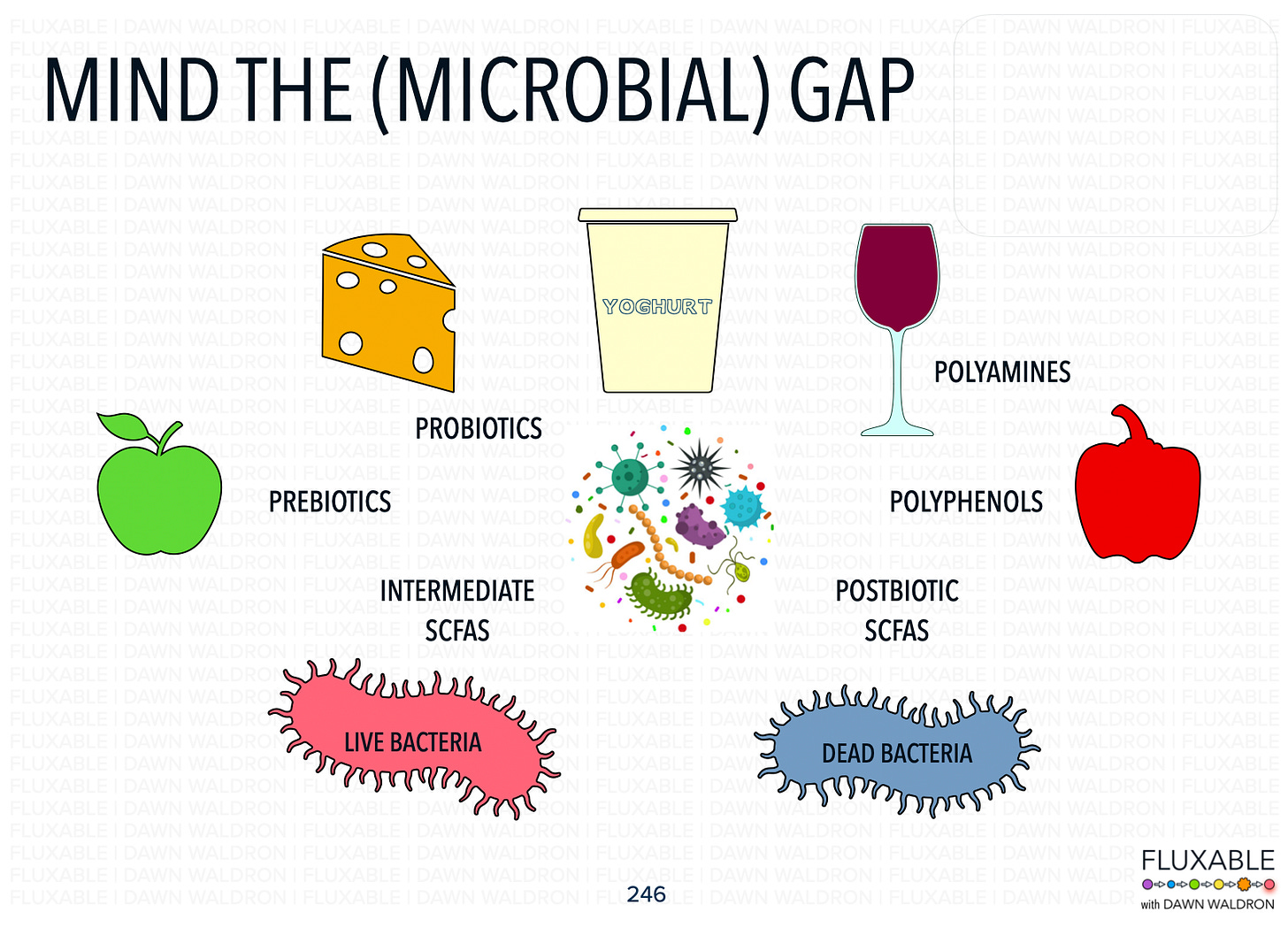How to safely support your microbiome: cultivation vs supplementation
There is an intense buzz around the microbiome just lately which means lots of people pushing products on social media. But how do you know what's safe and effective?
We have spent a couple of months expanding our understanding of the structure and function of the microbiome and its role in cancer, reframing it as an intelligent communications network that extends over every surface of the body, inside and outside, inhabiting all our organs and orifices - and even inside our tumours.
Our symbiotic microbial relationship is essential to life. We provide food (prebiotics), shelter, a chemically conducive environment and, in return, our microbes (probiotics) turn our leftovers into useful metabolites (postbiotics) that extend our capacity and support our wellbeing. There are thousands of different organisms in the network, they each have an important job to do, and they are all part of a production line. Some are making metabolites for us while some are making metabolites for each other; some are turning toxins into nutrients and some are turning nutrients into toxins. It’s a finely balanced, cooperative community that plays a major role in our personal FLUXABILITY.
The bugs in your gut play pass the parcel with their metabolites to achieve the mutually beneficial end goal of reproducing themselves (and closely related species) and supporting the health and wellbeing of their environment (that’s you)! We could take a leaf out of their book when it comes to taking care of our own environment, but their world is increasingly challenged too. Increasingly our microbial community is not as dense or diverse as it should be, and we need more than yoghurt and a daily probiotic to tip the balance. On the other hand, reckless supplementation might do more harm than good.
This week’s post explores the various dietary components that can support and extend the capacity of this vital army of helpers and flags the places where you may be in danger of making things worse.



